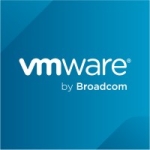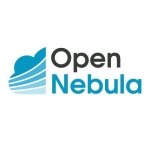What is most valuable?
Dashboards. They give a single pane of glass where you can view multiple clients, multiple issues, networking, data stores, etc. Another good tool it has is capacity planning for your host, your costs.
We have large environments, around 55,000 VMs and 5000 to 8000 hosts. So there's a lot of hosts, a lot of clusters, a lot of movement.
What needs improvement?
During upgrades I'd love to see a single pane of glass showing what the system's actually doing. In our case, we have a UK datacenter. It might take five, six, or seven hours to upgrade the whole environment. All I'm doing is looking at a screen that says "four out of nine steps". I don't know where it's at. I don't know if space is filling up, if I have to run a df-h on the nodes to actually see if something's filling up during that time. I have to read the upgrade log files.
For me, I want to see some kind of metrics there, which I can look and say, "Okay, at this point it's pushing the pack file out to the UK." I don't want to sit there and look at each screen for three hours, and then have to wonder if I should call VMware or not. If I let it sit three more hours, then we're down for six hours, and I could have called three hours ago to fix it. The problem is, I didn't know if there was an issue or not.
What do I think about the stability of the solution?
Stability is good. It's easy to upgrade, easy to maintain. They made it easier with 6.5. Instead of having to add in an extra data node, or an extra remote collector, to add into the virtual center to pull in metrics, all you do is expand the memory. You start off small, then you start expanding the memory. Therefore, as long as your host can handle the memory you don't have to purchase anything extra.
How are customer service and technical support?
GSS is pretty good. They're not so key to the actual architecture behind it. They can answer general questions. If you need to escalate, you need to escalate to BCS. In general, GSS does a really good job.
Which solution did I use previously and why did I switch?
I think they've been using vRealize about five or six years now. I'm not sure what they used before we got monitoring tools.
In this case, it was a company-wide decision. Really we're using vROps for host monitoring, for clustering, and for data store vSAN. We had a use case where we have to work with hospitals, so it can't be down.
How was the initial setup?
I wasn't involved in this.
I have set it up in another site, initially, starting it off with Horizon View.
It was real straightforward. There are lots of guides out there. VMware helps you with it, guides you on how to set everything up. All you're doing is installing a management pack file for the vCenter. Then, to connect to your vCenter you have to have a username, password, and the fully qualified domain name name, and that's it.
Which other solutions did I evaluate?
Not at this time, because we're partnered with them.
What other advice do I have?
When selecting a vendor be sure to look at reliability, uptime, and make sure that they're available for you. Because we work for hospitals, hospitals can't be down, they can't be down at all, even for a minute or two.
Definitely find a couple of use cases to make sure that vROps is what you need. vROps, can do pretty much everything up to capacity planning. It comes with different licensing levels, Standard, Enterprise, Advanced. Find out what you need, which version and edition.
Disclosure: My company does not have a business relationship with this vendor other than being a customer.

















